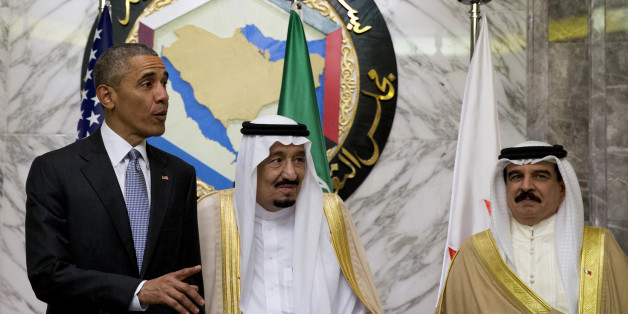
IPFS
The United States Should Quit Coddling a Badly Behaving Saudi Arabia
Written by Ivan Eland Subject: Saudi Arabia
The United States no longer needs to coddle the despotic monarchy and should end this alliance of convenience.
The informal U.S.-Saudi alliance began during World War II, with President Franklin D. Roosevelt realizing that the likely substantial oil deposits under the sands of the Saudi kingdom could satisfy the increasing American need to import foreign oil. He and the founder of the Saudi dynasty in Arabia, King Abdul Aziz ibn Saud, agreed that the United States would provide security for the monarchy in exchange for oil.
Obama's trip to Saudi Arabia was designed to smooth Saudi ruffled feathers over the U.S.-led agreement among the great powers and Iran, the Saudi's regional arch rival, which froze Iran's nuclear program for ten to fifteen years. The United States, however, should not be sheepish about an agreement that at least delays Iran becoming a nuclear weapons state. In fact, Iran's neighboring enemies — Israel and Arab Persian Gulf states, led by Saudi Arabia, are the biggest beneficiaries of the Iranian nuclear program's freeze.
However, Israel and Saudi Arabia, nations with huge influence in Washington, wanted more: the United States to bomb, and thus weaken, the Iranian potential regional titan. Instead, the United States needs to improve relations with Iran — with its huge population and economic potential — to keep it out of the orbit of China, which is thirsty for Iran's oil.
To further assuage Saudi Arabia over the nuclear agreement with Iran, Obama also has unnecessarily provided the new reckless Saudi leadership with military assistance, as the monarchy has militarily intervened in nearby Yemen's civil war — all the while bombing civilians indiscriminately.
Such disregard for human rights has a long history in Saudi Arabia, which has one of the worst human rights records on the planet, especially in the treatment of women and with its continuation of barbaric medieval punishments. In addition, the kingdom has been the biggest exporter of Islamist radicalism on the planet, with long-time credible suspicions that parts of the Saudi government even have been benefactors of terrorism.
Yet the United States mutes its criticism of such practices because of the pervasive myth among U.S. policymakers that the Saudis can manipulate world oil prices and that the American economy will crash if the Saudis wink and create a world price spike. Neither is true.
Contrary to popular belief, Saudi Arabia provides only 11 percent of U.S. oil imports. More importantly, although Saudi Arabia is the undisputed leader of the OPEC oil cartel, even before the U.S. fracking boom — which has again restored the United States to being the world's top oil producer — most economists believed that resource cartels, including OPEC, had little long-term success in raising commodity prices beyond the levels of the world market. That's because when any cartel tries to artificially raise the price, its members have an incentive to secretly cheat and sell more than their cartel quotas allow — thus bringing the price back down.
So Saudi control over the world's oil market is a myth. Second, industrial economies, such as that of the United States, have historically proven fairly resilient to oil price spikes.
Thus, Saudi Arabia has proven to be a bad ally, and the U.S.-Saudi alliance — originally based on false premises and now out of date with the U.S. fracking boom — should be ended. There is no need to further indulge a medieval despotic abuser of human rights and exporter of worldwide radical Islamism with political backing, destabilizing arms sales, and military assistance for its reckless war. As I note in my book, No War for Oil: U.S. Dependence and the Middle East, simply paying the world market price has always been the best way to ensure that the United States gets all the imported oil it needs as cheaply as possible.
Follow Ivan Eland on Twitter: www.twitter.com/Ivan_Eland































